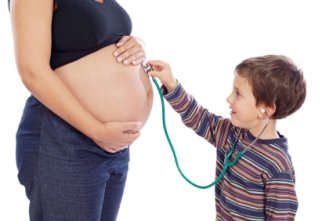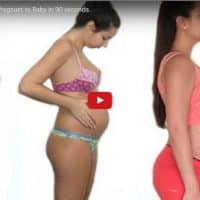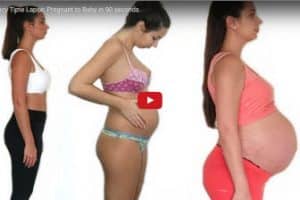 by Patricia Hughes
by Patricia Hughes
Doctors often refer to pregnancy in women age 35 and older “advanced maternal age.” This can be a very upsetting for some women. There are both risks and benefits to postponing motherhood. Your doctor will monitor your health and your baby to prevent and treat possible complications.
Pregnancy Risks after 35
Infertility is more common as women get older. As we age, our fertility naturally declines. Women who postpone motherhood are often surprised to discover they can’t conceive right away. Women over 35 should see a doctor if they haven’t conceived within six months. Certain infertility procedures can result in a multiple pregnancy. This increases risk factors, such as pre eclampsia and premature birth.
Chronic health conditions including diabetes and high blood pressure are more common in women over the age of 35. These and other chronic health conditions often begin to appear after age 30. As a result, a larger percentage of older women will begin pregnancy with a pre existing health condition.
Certain chromosomal birth defects are more common in older mothers. For example, a 25 year old woman has a 1 in 1250 chance of having a baby with Down’s syndrome. At age 35, a woman has a 1 in 400 chance of having a baby with Down’s syndrome. At age 40, the risk increases to 1 in 100.
Miscarriage and stillbirth are both more common in women over the age of 35. According to the American College of Obstetrics and Gynecology, ten percent of pregnancies end in miscarriage for women in their twenties. Women from 35 – 39 have a 20 percent chance of having a miscarriage. After the age of 40, the risk rises to 50 percent.
Complications occur more often in older mothers. Two of the most common and potentially serious are gestational diabetes and pre eclampsia, which is also called pregnancy induced hypertension. Your blood pressure will be monitored closely and your urine will be checked for protein and sugar at each visit. These are indicators of pre eclampsia. A glucose tolerance test will be done to check for gestational diabetes.
Cesarean rates tend to rise with the age of the mother. Older mothers are more likely to have a c section, according to a 2003 study published in OB/GYN News. The eight year study found that the c section rate for mothers over the age of 35 was 28%, compared with only 9% in women under the age of 25. The two increased risk factors that were identified in the study were fetal distress and cephalopelvic disproportion.
The Benefits in Motherhood After 35
The news isn’t all bad. There are some definite benefits for mothers over the age of 35. Older women tend to be more financially stable than young mothers. Women over the age of 35 are more likely to be in a stable relationship. Most have more resources to aid in raising a baby than very young moms.
Studies at Columbia University and Johns’ Hopkins School of Medicine showed that children of older mothers may fare better in life. The Johns Hopkins study was one of the first that followed children over a 40 year period. The study found that the children of older moms were less likely to become pregnant as teens, were more likely to attend college and less likely to have spent time in jail.
Although there is increased risk, the vast majority of babies born to older mothers are born healthy. Your doctor will monitor your health and may suggest additional testing, if needed. Worrying excessively is bad for you and your baby. The best thing you can do is get regular prenatal care, eat a healthy diet and enjoy your pregnancy.
Biography
Patricia Hughes is a freelance writer and mother of four. Patricia has a Bachelor’s Degree in Elementary Education from Florida Atlantic University. She has written extensively on pregnancy, childbirth, parenting and breastfeeding. In addition, she has written about home décor and travel.












What an article! I am 35 and thinking about whether or not to have a third child. I certainly know what to keep in mind and what to dismiss now.